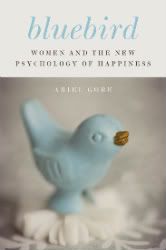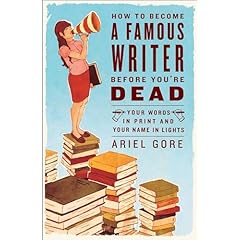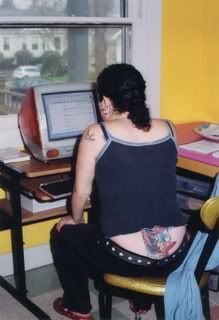Feb 18, 2010
Feb 5, 2010
Happiness is a beautiful woman, a ukelele, red curtains, pendant lamps, and absinthe...
Linda Rand reflects on being a part of the research for Bluebird:
It has definitely changed me. When I was participating in Ariel's happiness project, I realized the emotion happiness co-existed with other emotions. It wasn't some rarefied state to attain... that I could be sad or depressed but find that little joy within myself, at being alive, or having a home, or beautiful kids...
Since then I've been using it as a sort of barometer of where I'm at...or an internal compass of sorts:) when I'm lost I follow the thread of joy and end up back on my path. today my life is less frustrated and compromised. I'm an artist who makes marionettes and mixed media and have sold pieces, including commissions for about a year. I had more bartender jobs than I could keep and have whittled it down to two places. One is a retro supper club and lounge where I am surrounded by amazingly talented people. When I first walked into the place there was a '30s hot jazz act (Midnight Serenaders), a beautiful woman in garters and a ukelele, red curtains, pendant lamps, absinthe, and I thought, "this place is for me," and I ended up working there within the month. To this day, when I'm confused intellectually (the mind is a great tool but a terrible master some wise soul said) I find that feeling... is it happiness or something else? Is it restriction, dread... numbness? then I know whether it's right or wrong.... at least I have a clue.
Since then I've been using it as a sort of barometer of where I'm at...or an internal compass of sorts:) when I'm lost I follow the thread of joy and end up back on my path. today my life is less frustrated and compromised. I'm an artist who makes marionettes and mixed media and have sold pieces, including commissions for about a year. I had more bartender jobs than I could keep and have whittled it down to two places. One is a retro supper club and lounge where I am surrounded by amazingly talented people. When I first walked into the place there was a '30s hot jazz act (Midnight Serenaders), a beautiful woman in garters and a ukelele, red curtains, pendant lamps, absinthe, and I thought, "this place is for me," and I ended up working there within the month. To this day, when I'm confused intellectually (the mind is a great tool but a terrible master some wise soul said) I find that feeling... is it happiness or something else? Is it restriction, dread... numbness? then I know whether it's right or wrong.... at least I have a clue.
I believe this was the first time anyone asked me how I achieved happiness...
Margaret, another woman on the Bluebird counsel of experts, says:
Given the dearth of inquiry toward women and their personal experience with happiness, I found Ariel's research revolutionary. I am a person who is resilient in spite of hardship and I make happiness a key factor in decision making. But I believe this was the first time in my life that anyone--friend, family, or professional--asked me how I achieved happiness. The other women in the group were diverse in personal experience, so I heard a rich variety of opinions not only on ways to attain happiness, but also the importance such a goal may or may not deserve.
Feb 3, 2010
A slight shift in consciousness
For Bluebird, I asked women to keep happiness journals--just simple notes about the best moments in each day. We all then met and talked about our experience, and about happiness.
Now, many months later, I asked some of the women who participated in the research to reflect on the experience.
Roslyn Farrington says this:
I really loved the process. I love that we all independently got the same assignment and then when we came together it was lovely to see how everyone took on the task and interpreted the homework. For me, it helped me to see more clearly how I had been unconciously thinking of and practicing happiness as somethig that comes from outside of me rather than cultivating a "spirit of happiness" that was based on my internal relationship with myself. I intellectually knew that happiness came from within, but the daily tracking of feelings of happiness helped me to know that I wasn't always living what I knew. So the shift for me was a slight shift in consciousness and attention.
Feb 2, 2010
Upcoming Portland & San Francisco Readings
I'll be talking about / reading from Bluebird in Portland and San Francisco soon...
Wednesday, February 3rd - 7:30 pm
POWELL'S CITY OF BOOKS
1005 W. Burnside, Portland
Tuesday, February 23rd - 7 pm
BROADWAY BOOKS
1714 NE Broadway, Portland
Wednesday, March 24 - 7 pm
MODERN TIMES
"What actually makes this book sing though is Ariel charming and witty writing style. She tells stories of her family and stories of her friends. Women she knows well and barely knows at all, come forward to say what works for them, what makes them happy. No two stories are alike but all have a familiar ring. Happiness is found in kissing the head of a baby and smelling in his scent, a hike in a favorite place, or an evening spent alone in a bath. Guess what happiness industry? Surprise, surprise, happiness actually doesn’t cost you anything — perhaps though, it might be worth the cost of this book."
--from Wise Bread
I wanted to like The Happiness Project
Has anyone read The Happiness Project by Gretchen Rubin?
Is it just me, or is this book totally barf-worthy?
She talks about "eating healthy" with her friend on the "no fake food" resolution & then they put artificial sweetener on their SALAD (instead of dressing... fewer calories! Yippee!)
This is the nonsense that gives Americans in general & positive psychology in particular a bad name.
GIVE ME OLIVE OIL!
Did we really claw our way to the top of the food chain to eat artificial sweetener on our salad?
I wanted to like The Happiness Project. Really I did.
The premise is right up my alley: A woman--a wife and a mother no less--sets out to make herself happier. And she does so without apology. Radical. Gretchen's character, with all her chart-making anxiety, is endearing. She's well-read and well-educated. Maybe that's why it's all the more maddening to watch her poison her salad and make resolutions like "don't eat hours' d'vours" and "make three new friends" and "unclutter your closets."
Am I really being invited to diet and make fake friends and do housework for happiness?
My daughter doesn't usually go in for feminist conspiracy theories, but she took one look at the book and said, quite seriously, "Maybe she was hired by the government. Just like Taylor Swift. Reverting back to the 50s-housewife kitchen-sink diaries so we won't pay attention to the war and the economy."
I appreciated my daughter's immediate clarity. Here I'd sat with the book for hours, allowing it to make me feel like a loser. I don't consider myself poor, but suddenly I was thinking, Wow, if I can't afford a personal trainer, a professional photographer for the kids, and an organic salad (with saccharine) at a New York deli, how will I ever be happy??
Positive psychologist Martin Seligman has said, "when nations are wealthy and not in civil turmoil and not at war, they start asking what makes like worth living, and that's what positive psychology is about."
But I reject the idea that positive psychology can only be a psychology of privilege.
Rich people have every right to their feelings, sure, but materialism isn't what ultimately makes people happy--materialism is what's killing the planet.
In the introduction to The Happiness Project, Gretchen Rubin makes a point to underline how "fortunate" she is--with her tall, dark, handsome, and well-employed husband and their healthy children. But she also states, as so many writers on happiness do, that she can't really define happiness. "I'll know it when I see it," they say.
Happiness is hard to define--it's a vast human emotion--but if we're going to consider something deeply--if we're going to write a whole book about it--I think we can venture at least a working definition.
Canadian positive psychologist Paul T.P. Wong defines happiness as “the capacity to rejoice in the midst of suffering.” I like that definition. Happiness isn’t the absence of suffering. Happiness doesn’t have to be about privilege or denial.
Clearly happiness is hard to muster when we have real survival anxiety, but if happiness requires a personal trainer and an "over buying" problem as we read about in The Happiness Project--Well, I don't know.
But next time I get $10, I'm spending it on olive oil--& I'm sharing it with someone who'll appreciate a little fat.
the point of poetry?
Why bother with art? In the wake of the earthquake in Haiti, and when millions have no food and water, Scott Christian wonders on Salon.com: Who gives a shit about Picasso? What's the point of poetry?
My mother has lung cancer even though she never smoked. A visual artist, she wonders if she's ill from years of inhaling poisonous paint fumes and fixants.
My daughter clicks to private design school websites. They cost $21,000 a year, $28,000 a year, $42,000 a year.
Is art a privilege?
Is it a necessity, like food and water?
Is it poison?
I wrote a book on happiness, but now that it's out there's a recession on and the journalists call for their interviews and complain: Americans can't afford happiness anymore.
But I was poor for long enough to know that happiness is one of the free things--like love, like creativity.
In the rubble, a woman is singing.




